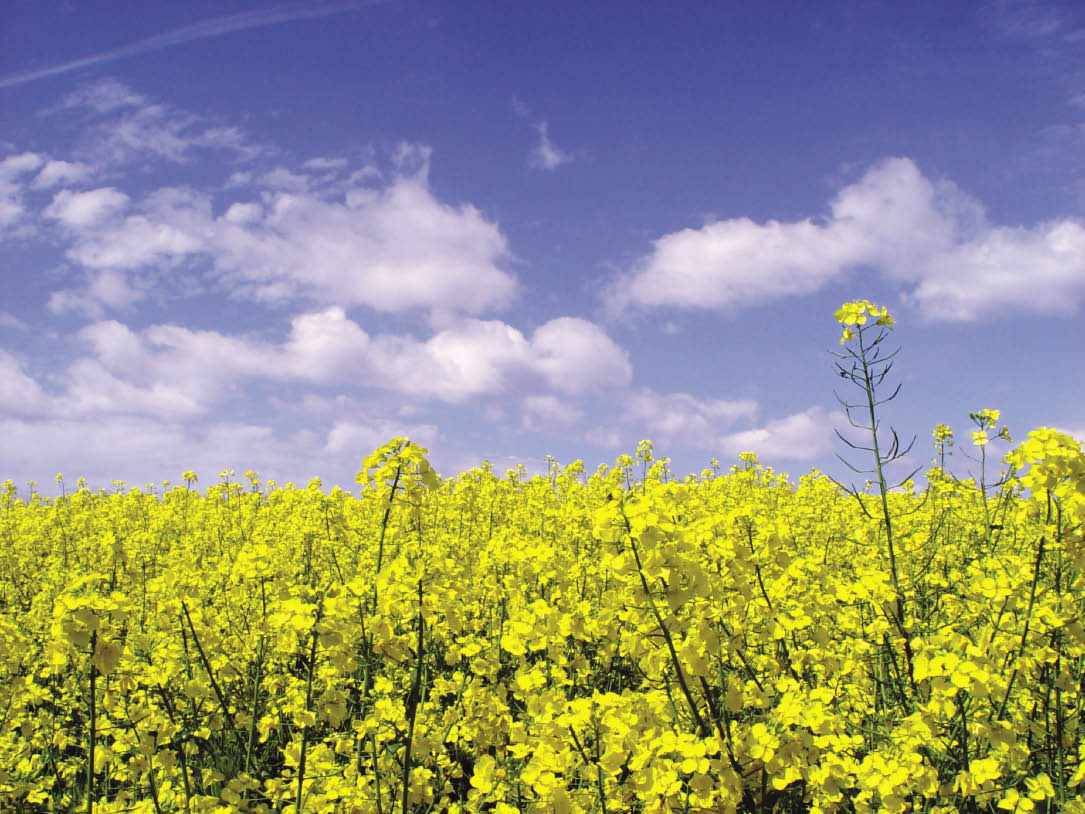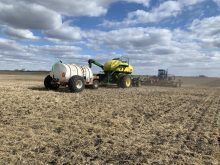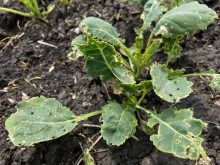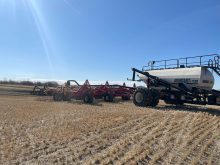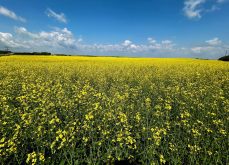The Canola Council of Canada says almost all of the new production will come from increased yields, not more acres
After hitting its production target of 15 million tonnes average canola two years early, the Canola Council of Canada has a new one — 26 million tonnes by 2025.
It says it will be achieved not by planting more acres, but through higher yields averaging 52 bushels an acre, instead of the current five-year average of 34.
“That’s a bold target, no doubt about it, but it can be done and it can be done responsibly and sustainably,” council chair and Saskatchewan farmer Terry Youzwa told reporters Jan. 9 in Winnipeg while kicking off the council’s new “Keep it Coming 2025” promotion.
Read Also

CUSMA access key among other trade noise: Seeds Canada panel
Seeds Canada conference panelists say Canada needs to stay focused and wait as U.S. trade and tariff chaos develops, and a Canada-U.S.-Mexico Agreement review looms
“As a canola grower myself I am convinced we can achieve 52 bushels an acre.”
Youzwa said the canola industry has set and met its previous production targets — seven million tonnes by 2007 and 15 million by 2015.
“Setting targets works,” he said. “Just look at our track record.”
In 2013 Canada produced a record 18 million tonnes of canola from about 20 million acres, averaging a record 40 bushels an acre. Canola production has averaged 15 million tonnes over the past three years, Youzwa said.
Last crop year Canada exported eight million tonnes of seed, processed 7.5 million tonnes domestically, and exported a lot of the resulting oil and meal, he said.
“The world is demanding more healthy canola oil and we can step up and be part of it or step back,” Youzwa said. “We believe we can rise to the occasion but we’re going to have to up our game. That’s why we are sending a clear signal — a clarion call — on what our intentions are as an industry so all the players understand that we need to meet global demand.”
Key to meeting past targets has been market demand and the ability for farmers to make a profit growing canola. Both will be needed to reach the new target.
The council estimates with an increasing population, global canola oil demand will reach 250 million tonnes by 2025, up 67 per cent or 100 million tonnes from today.
With the world getting richer, more consumers will seek a healthy vegetable oil such as canola.The world will also need more protein to feed livestock, creating more demand for canola meal, Youzwa said.
“The world is telling Canada’s canola industry to keep it coming.”
‘Formidable task’
Boosting Canadian canola production to 26 million tonnes is a “formidable task,” and success is not guaranteed, said council president Patti Miller.
Fifty-two bushels an acre is a 53 per cent increase from the current average, and 12 bushels or 30 per cent higher than this year’s record.
Getting to 50 bushels an acre by 2015 means Canadian canola yields will have to rise, on average, four per cent (compounded) a year. Average canola yields the last 10 years are only 16 per cent higher than the previous 10-year average.
Some of the yield increase will come from improved genetics in new varieties, said Neil Arbuckle, a canola council director and Monsanto’s western marketing lead for seed and traits.
“We’re working on hybrids that are more resilient to weather patterns, resilient to diseases and pests and have high-quality characteristics that are highly sought after in world markets,” he said.
But most of the increase will come from improved agronomics, Youzwa said.
“We believe by applying the newest science around agronomics we can achieve yield gains by maximizing plant establishment, meeting the full nutritional requirements of the crop, improved integrated pest management and improved harvest management.”
The goal will be to maximize the production from every canola seed planted, he added.
Youzwa stressed higher canola production will be done sustainably. That’s why the emphasis is on boosting yields, not acres. Some agronomists contend many farmers are growing canola too often in their rotations, increasing the risk from diseases, insects and weeds.
Farmers want to leave their land in better shape for future generations, Youzwa said.
Part of the council’s strategy is to differentiate and demonstrate canola’s benefits, said council director Neil Sabourin, who also works for Cargill.
The council will also push for freer trade and to reduce tariff and non-tariff trade barriers, said Pat Van Osch, a CCC director and vice-president of Richardson International.
“We believe fundamentally that our product competes well on a level playing field, so a level playing field is our goal,” he said.






